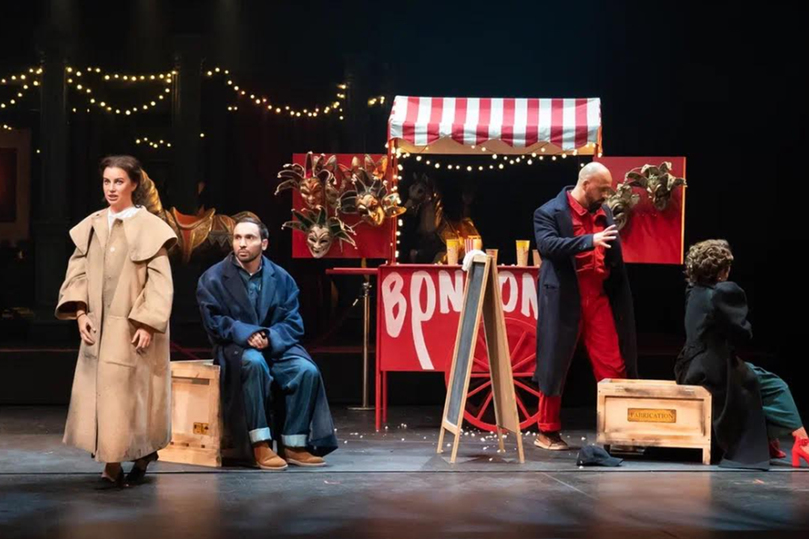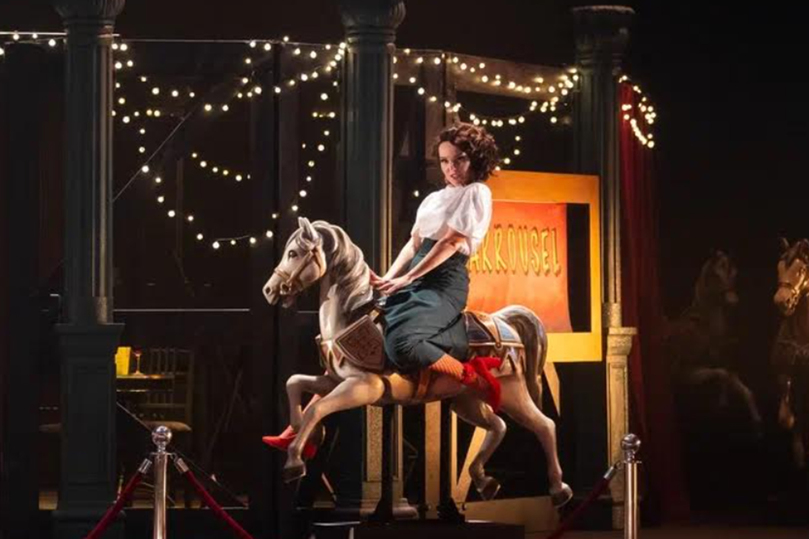Youth premiere took place in “Helikon-Opera”
[ad_1]
One La bohème was directed by four directors
The original project of “Helikon-Opera” – staging of “La Boheme” by Puccini with the help of four winners of the director’s competition “Nano-Opera” – was released and proved that the most daring and paradoxical undertakings of Dmitry Bertman are crowned with great success. “Bohemia” took place. Young directors Elizaveta Korneeva, Laysan Safargulova, Dmitry Otyakovsky and Mikhail Sabelev in collaboration with the equally young conductor Philip Selivanov, as well as with the participation of no less young artists Irina Sid (scenography), Fyodor Arkhipov (costumes), Elizaveta Kholmushina (costumes), Natalya Blinkova (make-up), Maxim Geller (lights) put on a powerful performance about frivolous infantilism, leading to a real tragedy.
I have long wanted to see such a “La Boheme” – this is how I myself understand this opera by Puccini, which brought fame to the composer, and culture – a new theme of asociality as a principle of existence for the era of the late 19th century.
Young heroes correspond to young directors. And it does not matter how they divided the opera among themselves – horizontally or vertically, it is important that they agreed on the main idea and managed to lead it from a cheerful beginning to a deadly tragic finale.
I’ll start with the orchestra, because the orchestra in Puccini’s operas is not an accompaniment to the singers, and not even part of the dramaturgy. Everything is concentrated in the score: meanings, parallels, codes, symbols, including hidden, implicit ones. Conductor Philipp Selivanov set a high emotional level from the very first bars, never lowering it. The voices of all the soloists were also excellent. However, I would still like to call the performer of the Mimi part Olga Tolkmit the first among equals. And I’ll tell you right away about the ensembles that play the most important role in this opera: they were impeccable.
Directors and artists have come up with a special environment for their characters – a company of freaks living outside of time and space. It can be an attic in Paris at the end of the 19th century, and an attic in St. Petersburg in the 90s of the 20th century, or a broken-down apartment in the center of today’s Moscow. Heroes are poor not because they are poor. Because that is their way of life. They have so much fun. And so cool. Don’t go to work? It’s much cooler to pretend to be artists, philosophers or poets. And a bottle of wine or a suspicious white powder may well compensate for the lack of food or warmth.
Marcel (Dmitry Yankovsky) and Musetta (Elnara Mamedova) are the happiest in this company. Because they are all on par. Their fights only turn each other on. And jealousy is a reason for a new round of passion.

Shonar (Alexander Bokarev), dressed in an 18th century costume, is quite satisfied with his fate, especially since as the only professional from the whole company (after all, unlike a poet or philosopher, a musician is a real profession) he earns at least something for life. An interesting figure is the philosopher Collen (Georgy Ekimov). Eccentric – with dreadlocks, funny plasticity of Jack Sparrow – Collen is deprived of the slightest chance of being a lyrical hero. But it is he who is the last to remain at Mimi’s deathbed. I am guessing Dmitry Bertman’s hint here: the fact that it is Collen who is secretly in love with Mimi is embedded in the musical material. This is one of those secrets that lies in the ingenious score of Puccini.
A couple of the main characters are well developed. Mimi is a flirtatious girl at first, acting out the opening scene of losing her key, fainting, and other tricks to get to know Rudolf. But she does fall in love. And really sick.

But Rudolf (Shota Chibirov) has absolutely no intention of answering his girlfriend in the same way. And even more so to take responsibility. The scene of Rudolf and Mimi’s parting was wonderfully invented: the stage directors placed this most dramatic episode in the atmosphere of an amusement park that is opening. In the final episode, where Mimi reappears in the attic of friends before her death, there is a terrible detail: Rudolf shuns her, frankly afraid of getting infected. When, convinced of the death of Mimi, the whole company in a panic dumps from the attic, leaving the dead girlfriend alone, only the ridiculous Collen remains by her side until the end – until all the final heartbreaking chords are heard.
Newspaper headline:
One La bohème was directed by four directors
[ad_2]
Source link






